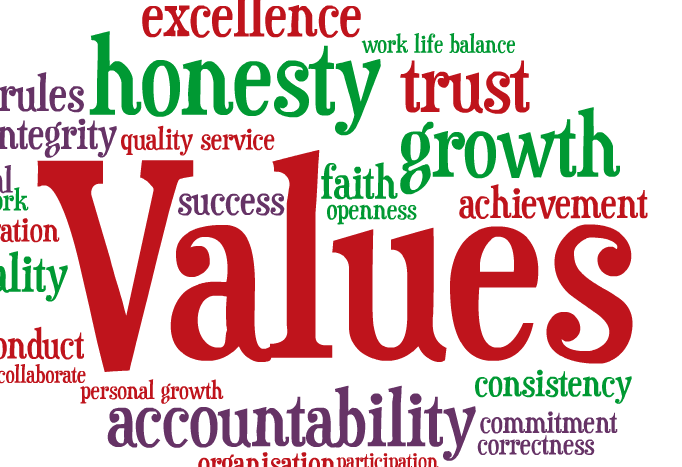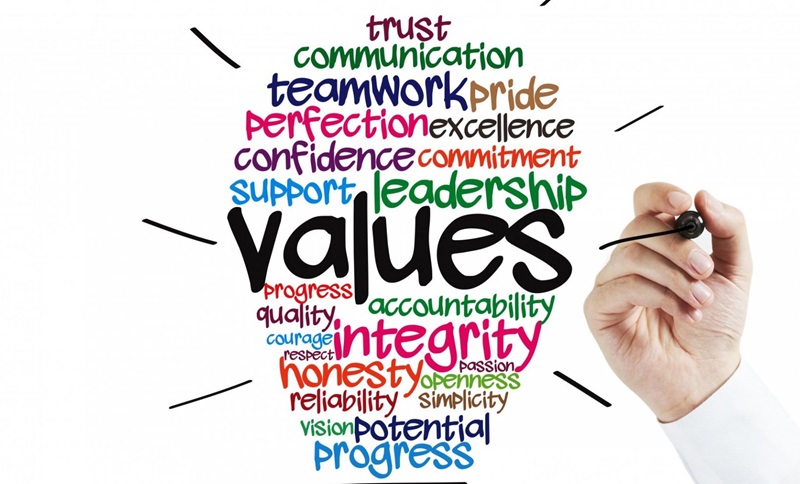There are numerous ways to ascertain your worth, both personally and professionally. One of the most important steps is self-reflection. This entails an honest evaluation of your strengths and weaknesses, your skills, talents, and abilities which set you apart from others.
Another method is to assess your impact on others, be it in your personal relationships or workplace. Are you someone people look up to for advice? Do you inspire others or contribute significantly towards the success of a project or team? This could be a testament to your worth. Additionally, achievements such as degrees, certifications, or promotions can also serve as tangible indicators of your value.
However, it’s crucial to remember that these are not the only barometers of worth. Personal growth, emotional intelligence, resilience, and empathy are equally valid and often overlooked markers of value. Another significant factor is self-esteem and self-worth, which is often shaped by our sense of identity, experiences, and how we perceive ourselves. It’s essential to nurture a healthy self-esteem as it directly impacts our sense of worth.
Lastly, seeking feedback from others, be it from mentors, peers, family, or friends can provide valuable insights into how we are perceived by others, which can aid in determining our value. However, it’s crucial to ensure that this feedback does not entirely shape our sense of worth as our value is inherently subjective and must ultimately come from within.
Remember, the journey to determining your value is multifaceted and personal. It’s a continuous process of growth, self-discovery, and self-improvement. It’s about recognizing your potential, believing in your abilities, and striving to be the best version of yourself. It’s about understanding that you are unique, irreplaceable, and invaluable just as you are.

Assessing Your Skills and Achievements
Assessing your skills and achievements is a critical aspect of personal and professional development. This process involves taking a comprehensive look at your abilities, accomplishments, and areas where improvements can be made. It is advisable to begin by listing down all your skills, whether they are soft skills like communication and leadership, or hard skills like proficiency in a certain software or technical expertise.
This gives you a clear picture of your strengths. Following this, evaluate your achievements. These can include completed projects, successful initiatives, or any recognition received. It’s important to remember that these achievements are not limited to professional life only, significant milestones in your personal life also have a significant role to play.
However, the assessment process does not end here. It is equally important to identify areas where you lack or need improvement. Consider past feedback, challenges faced, or failures encountered. These will serve as a guide to areas that need attention or improvement. Once you have a comprehensive list, you can begin setting goals and working on these areas. The key is to never stop learning and growing.
Moreover, assessing your skills and achievements also has a direct impact on your confidence and self-esteem. By knowing your strengths and accomplishments, you can navigate through life with greater assurance. It can also serve as motivation to keep reaching for higher heights.
Finally, always remember that assessment is a continuous process, not a one-time event. Continually updating and reassessing your skills and achievements will ensure that you stay relevant and competitive in your field. It will also empower you to make strategic decisions about your career path or personal growth. In the end, the goal of assessing your skills and achievements is to foster growth, development, and satisfaction in all areas of your life.
Understanding Your Unique Value Proposition
Understanding your Unique Value Proposition (UVP) is crucial for any business or individual looking to establish a strong presence in the market. Essentially, a UVP is a clear statement that describes the tangible benefits a customer will gain from using your products or services, how you solve their needs and what distinguishes you from the competition.
It’s about identifying the unique aspects of your offering that make you stand out from the rest. To understand your UVP, you must conduct a thorough analysis of your business, the customer needs you’re addressing, and the competitive landscape. This process will involve deep introspection, market research, and customer feedback.
Once you have a clear understanding of your UVP, it can be used as a powerful tool in your marketing and sales efforts. It can guide your branding, messaging and overall business strategy. Remember, your UVP is not static; as your business grows and evolves, and as market conditions change, your UVP may need to be adjusted.
Continually revisiting and refining your UVP is vital in staying relevant and competitive in the market. It’s not just about what you do — it’s about how you do it differently and better, and the value that brings to your customers. Understanding your UVP is a fundamental step in creating a successful business strategy.

Comparing Industry Standards and Salaries
Industry standards and salaries, while both significant factors in a professional environment, differ greatly in purpose, measurement, and influence. Industry standards primarily refer to the commonly accepted criteria or benchmarks within a specific sector. These standards can encompass a wide array of elements, including quality control, ethical guidelines, safety protocols, and operational procedures. These are established to ensure consistent performance, maintain a level playing field for all market participants, and protect consumer interests.
On the other hand, salaries represent the monetary compensation that employees receive in exchange for their work. The determination of salary levels is generally influenced by factors such as job role, experience, skill level, educational qualifications, and market demand for specific skills. While these factors can vary widely across different industries, sectors, and regions, they essentially aim to provide fair remuneration for the work performed by employees.
In comparing these two factors, it is evident that industry standards can indirectly influence salary levels. For instance, industries with stringent standards and requirements often demand higher skill levels, leading to increased salaries. Conversely, sectors with lower industry standards may not necessitate such high skill levels, which can result in lower salary scales.
However, it is important to note that the relationship between industry standards and salaries is multifaceted and influenced by various external factors. Market dynamics, economic conditions, and societal values are just a few of the external influences that can affect this relationship. Therefore, while there is an evident correlation between industry standards and salaries, this relationship is complex and can vary greatly depending on the context.
In conclusion, industry standards and salaries serve different purposes and are influenced by different factors, but they also interact in complex ways. Understanding this interaction can help stakeholders in different industries make informed decisions about setting standards and determining compensation levels.
Soliciting Feedback from Peers and Mentors
Soliciting feedback from peers and mentors is a critical element for personal and professional growth. It is a process that entails seeking opinions, advice, and evaluations from those around you, who have a firm grasp of your work, competencies, or aptitude.
This feedback can often provide a fresh perspective, allowing you to identify areas for improvement that you may have initially overlooked. It also allows you to gain insight into your strengths, providing a platform for you to build upon them. This is particularly crucial in a professional setting, where the input from colleagues or superiors can guide you towards enhanced performance and career progression.
Meanwhile, in an academic or personal setting, mentors can provide invaluable guidance based on their own experiences and expertise. Constructive feedback from both peers and mentors can foster an environment of continuous learning and improvement. It is important to approach this process with an open mind and a willingness to accept and act upon the feedback received. Moreover, it can also be beneficial to reciprocate by providing your own feedback to others, thereby fostering a culture of mutual growth and improvement.
But remember, the objective of soliciting feedback is not to receive praise, but rather to gain a deeper understanding of your own capabilities and areas for growth. Therefore, it is paramount to accept feedback, whether positive or negative, with gratitude and a view to learning and improving. As such, soliciting feedback from peers and mentors is an ongoing and essential process that plays a pivotal role in personal, academic, and professional development.

Reflecting on Your Personal and Professional Growth
Reflecting on one’s personal and professional growth is an enlightening and transformative exercise that offers invaluable insights into one’s journey, strengths, weaknesses, and potential areas of improvement. It is a process of deep introspection that allows an individual to evaluate their progress, identify their achievements, and acknowledge the lessons learned from challenges encountered. This reflection can serve as a compass, guiding one towards their personal and professional aspirations.
In the context of personal development, the journey may encompass a wide array of experiences and lessons. From the evolution of interpersonal relationships to the refinement of emotional intelligence, the ability to adapt to change, to the strengthening of resilience, every aspect contributes significantly to one’s personal growth. This reflection can reveal patterns and recurring themes, enabling one to understand their reactions and behaviors better, thereby fostering emotional wellness and better decision-making skills.
On the professional front, reflection can help decipher the trajectory of one’s career — the roles undertaken, skills acquired, the milestones achieved, and the lessons learned from failures. This process can provide clarity on one’s career path, uncover hidden potentials, identify skill gaps, and provide direction for future learning and development. It can also spark motivation and drive, offering a sense of accomplishment and a reinvigorated passion for one’s work.
Ultimately, reflecting on personal and professional growth is a powerful tool for self-improvement. It is a journey of self-discovery that encourages continuous learning and development, fostering a growth mindset. It helps individuals to recognize their value, appreciate their journey, and empowers them to design a meaningful future. Therefore, regular reflection should be integrated into our daily routines to ensure that we are progressing and evolving as individuals and professionals.
